Avoid your inquiry is delay response, please enter your WhatsApp/Skype along with the message, so we can contact you at the very first time.
We will reply you within 24 hours. If for urgent case, please add WhatsApp/WeChat: +8613791936882 ,. Or call +86-18678911083 directly.
Plant handling is slow, breakage is costly, and space is tight. Random carts don’t fit benches or trucks. A standardized Danish flower trolley fixes this with adjustable shelves, smooth casters, and CC/Dutch compatibility—so you move more plants, faster, with less damage.
A Danish flower trolley is a standardized, wheeled rack with four posts and adjustable shelves designed for horticulture. Built from galvanized or powder-coated steel with plywood or wire-mesh shelves, it navigates tight aisles on swivel casters and nests to save space. Compatible with CC/Dutch systems, it streamlines transport, storage, and retail display for flowers and plants from greenhouse to garden center.
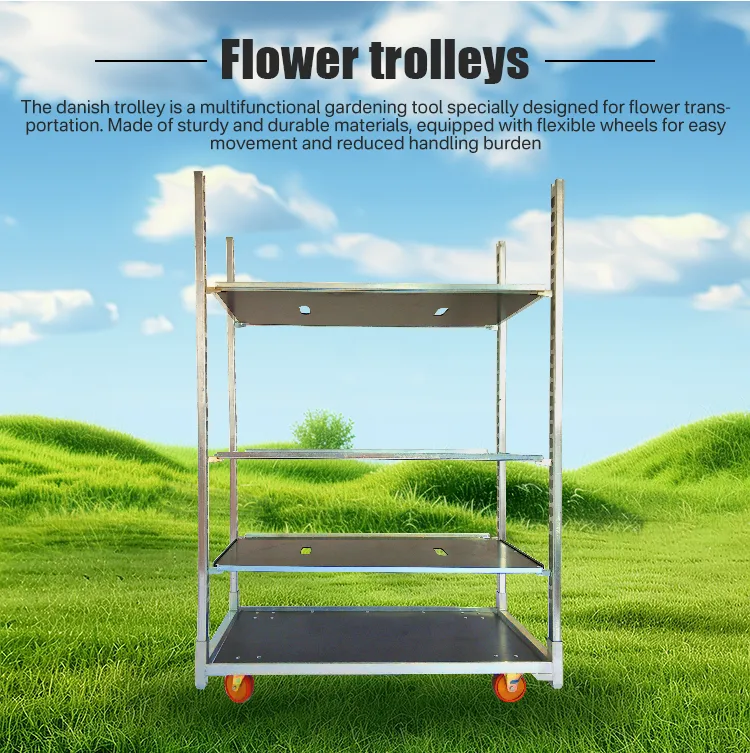
A Danish flower trolley (a type of danish trolley) is a modular plant trolley engineered for the horticulture industry. Its footprint matches CC/Dutch standards so it loads efficiently into trucks, rolls through greenhouse aisles, and converts instantly into a retail display cart. You can set adjustable shelves at various heights to fit liners, bedding packs, perennials, shrubs—even hardgoods.
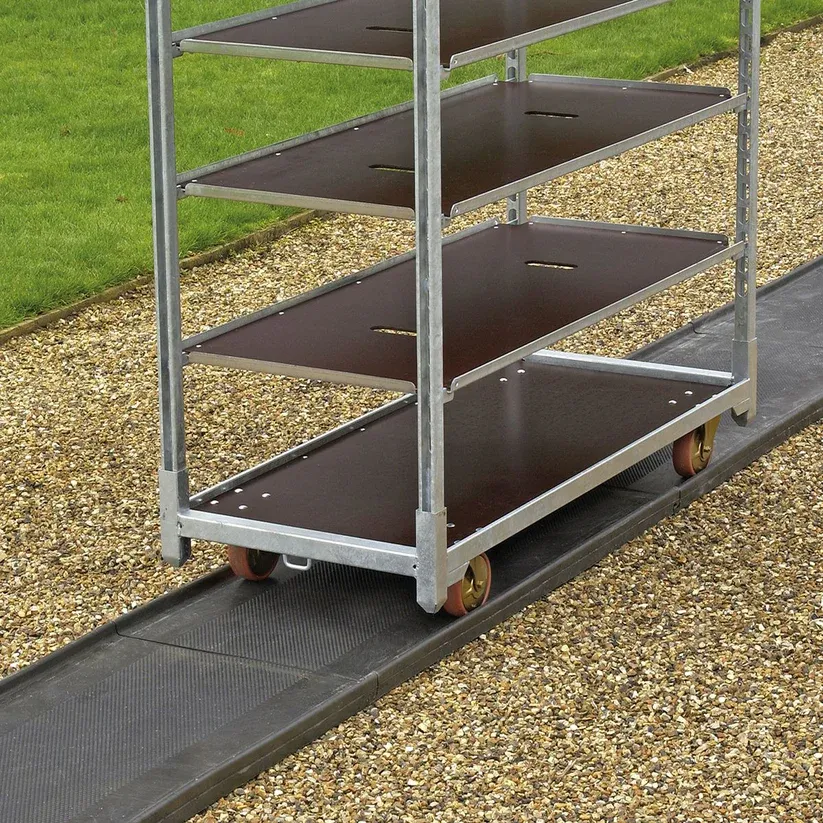
| Spec | Typical Options | Notes |
|---|---|---|
| Base (footprint) | CC/Dutch standard (approx. 1350 × 565 mm) | Aligns with danish cc logistics |
| Post height | 1350–1900 mm (custom possible) | Fits greenhouse and nursery crop heights |
| Shelves | 3 shelves to 6+ | Add/remove for seasonal mixes |
| Shelf type | Plywood shelves, wire mesh | Mix to match crop + sanitation |
| Finish | Galvanize or powder coating | Choose per humidity/washdowns |
| Rolling load | 300–500 kg typical | Verify weight capacity for heavy pots |
| Compatibility | CC trolley, danish container, cc dutch | Check notch pitch & base pattern |
CC/Dutch compatibility (the danish trolley system) is crucial if you ship through auctions, pools, or work with European-style carriers.
Plywood (wooden shelves)
Wire mesh / metal mesh
Tip: Many fleets run mixed shelves—mesh for production, plywood for display cart roles.
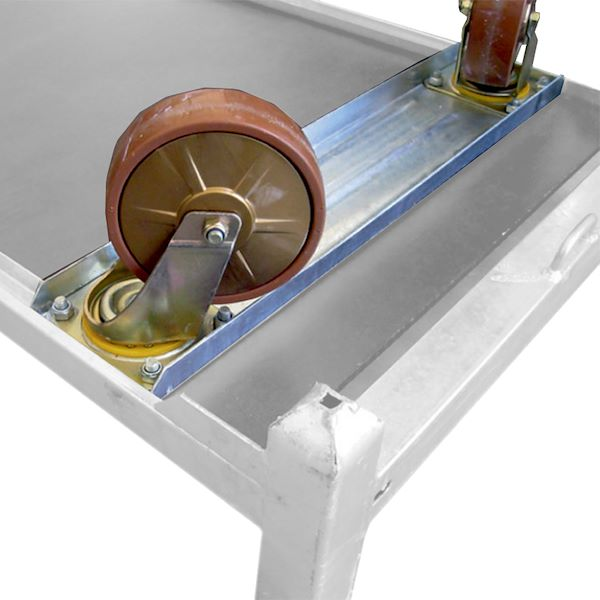
If you steam-clean or disinfect frequently, spec galvanized frames and wire mesh shelves.
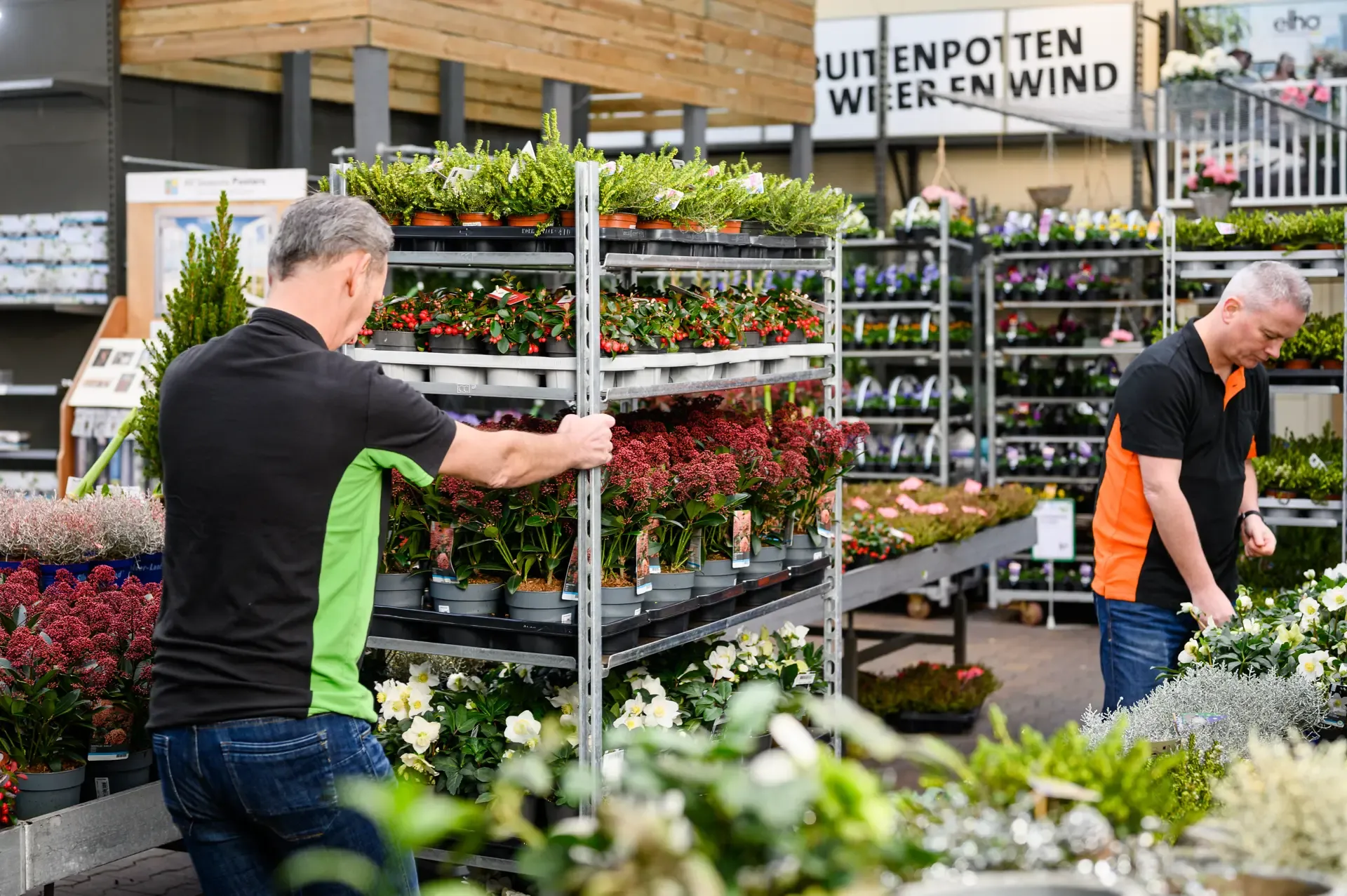
Cost of Ownership (TCO): Why Standard Beats “Cheap”
Over a season, the savings from labor + shrink often exceed the small premium for a high-quality danish build.
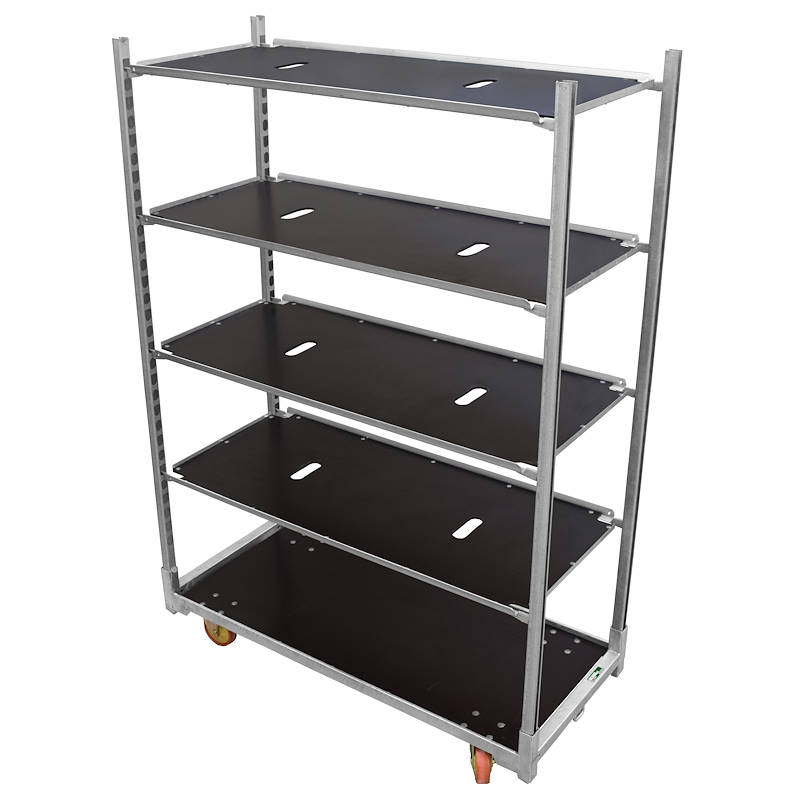
| Criteria | Danish flower trolley | Flatbed cart | Wheelbarrow | Garden wagon carts |
|---|---|---|---|---|
| Shelf adjustability | Yes (adjustable shelves) | No | No | Some (rails) |
| Plant protection | High | Medium | Low | Medium |
| Truck cube | Excellent | Good | Poor | Medium |
| Aisle turning | Tight | Medium | Tight but low capacity | Medium |
| Hygiene/drainage | Mesh option | Deck floods | N/A | Depends |
A regional garden center replaced mixed carts with a unified horticultural danish trolley fleet (mesh in production, plywood in retail).
–30% handling minutes during weekend resets.
–20% plant damage on arrival.
+18% display speed from dock to aisle.
Payback: <6 months from labor and shrink reductions.
Is a Danish flower trolley the same as a CC container?
They’re closely related. Many cart danish trolley bases and posts are CC trolley compatible. Always verify base size, post notches, shelf fit, and caster plate before mixing fleets.
How many shelves should I order?
For bedding/liners, 3 shelves plus base is common; for taller stock, use 2–3 shelves with greater spacing. Order a few spare shelves for seasonal peaks.
What’s the best wheel for rough surfaces?
Go 160 mm elastic rubber for grip and quiet rolling over hoses, thresholds, and cracked concrete. Keep spare caster kits on hand.
Should I choose galvanized or powder-coated?
Galvanize for wet, coastal, and heavy washdown environments. Powder coating if you want brand colors and mainly indoor use—ideally over pre-galvanized steel.
Can I mix plywood and wire shelves?
Yes—common in fleets. Use wire mesh in wet production and plywood for indoor garden center display to protect leaves and reduce noise.
Do you support OEM/ODM?
Yes. Height, shelf count/type, finish, brakes, labels, and route color-coding can be china customized with factory direct lead times.